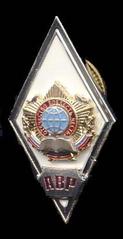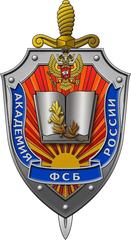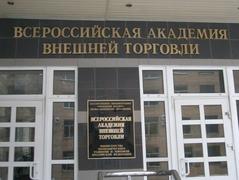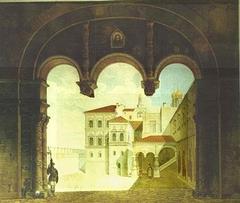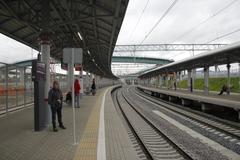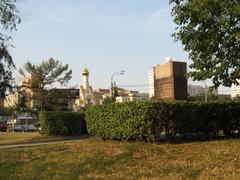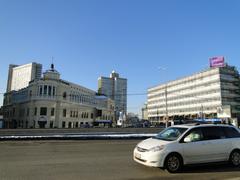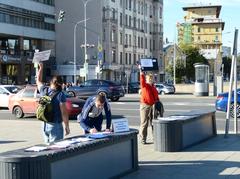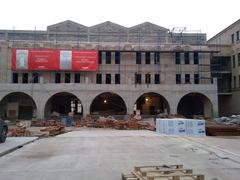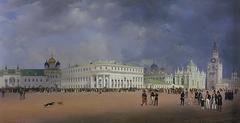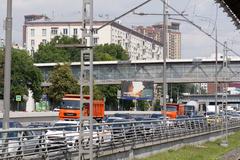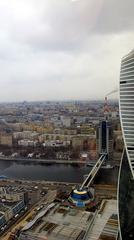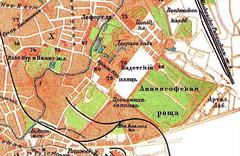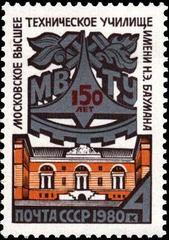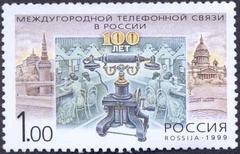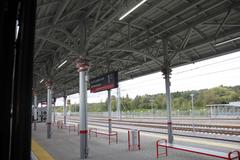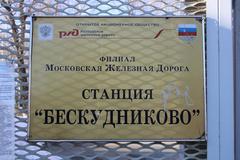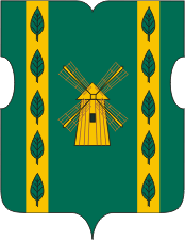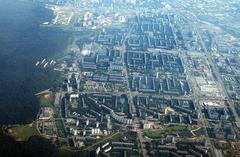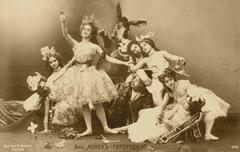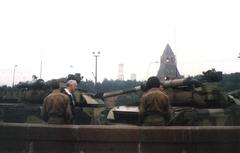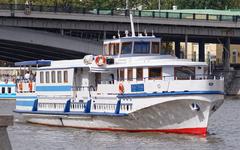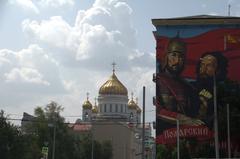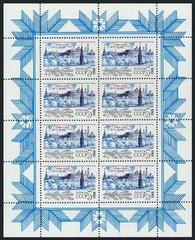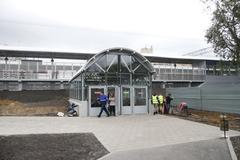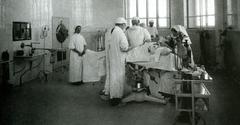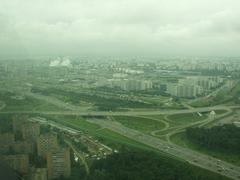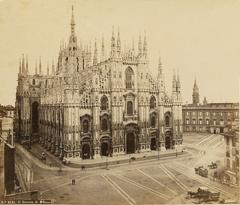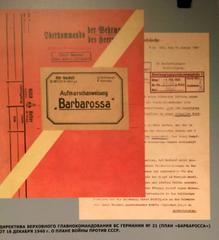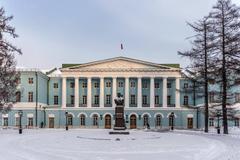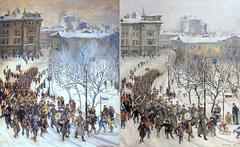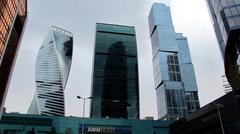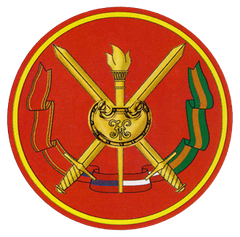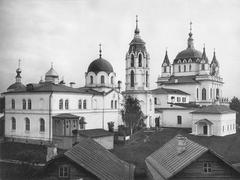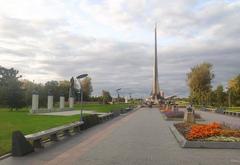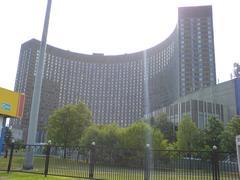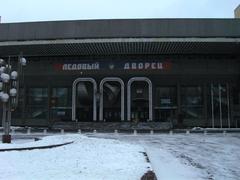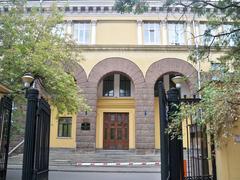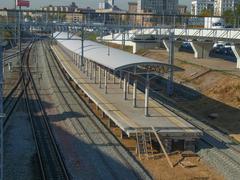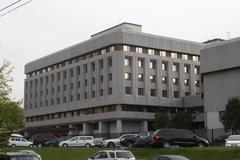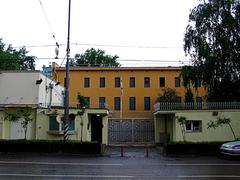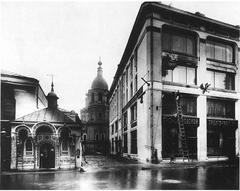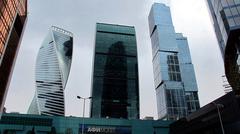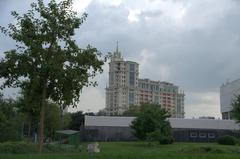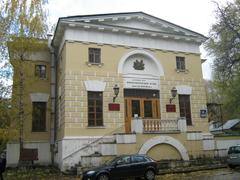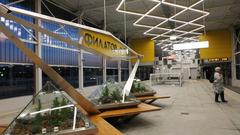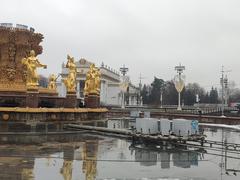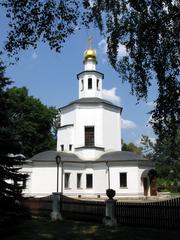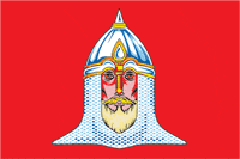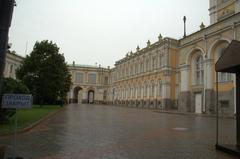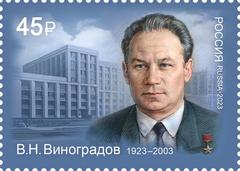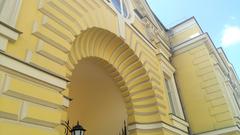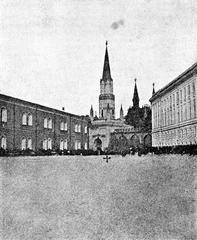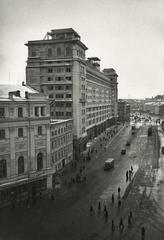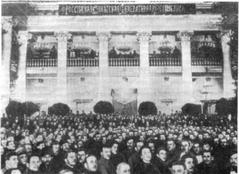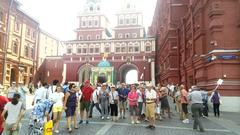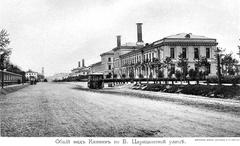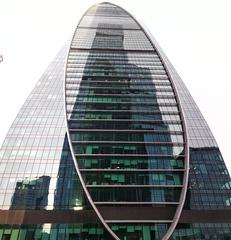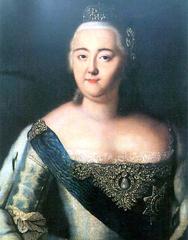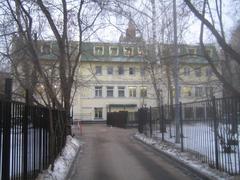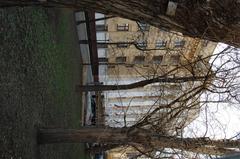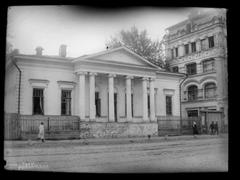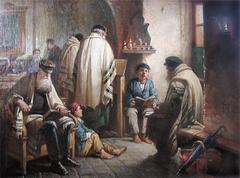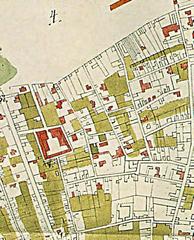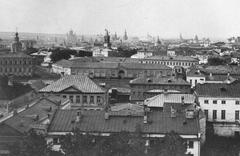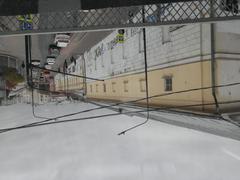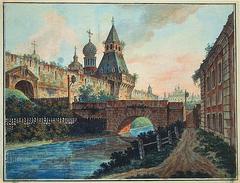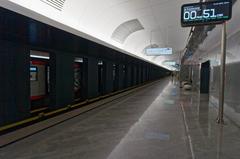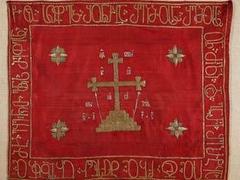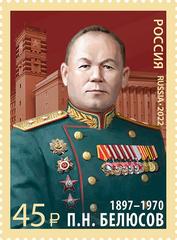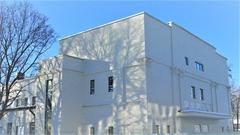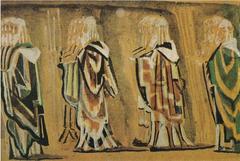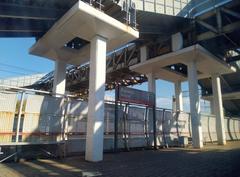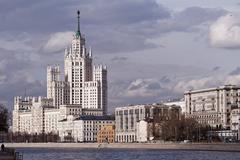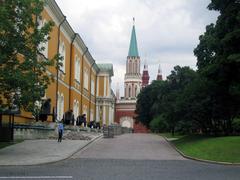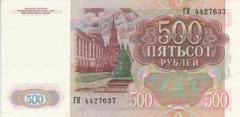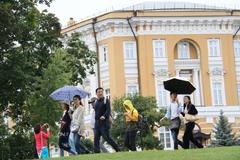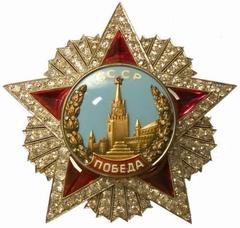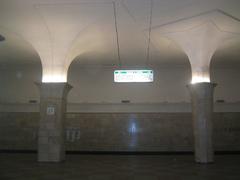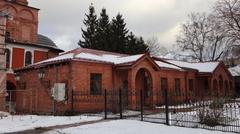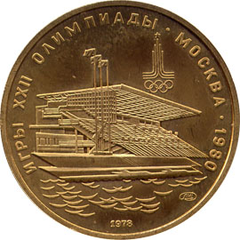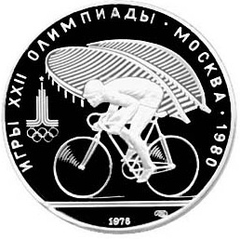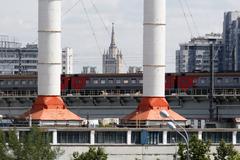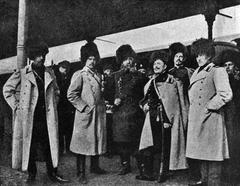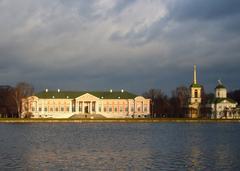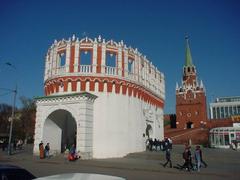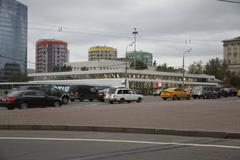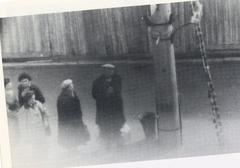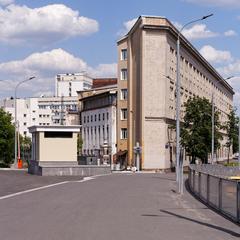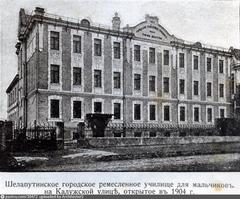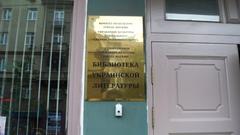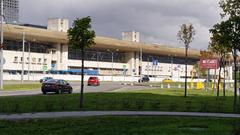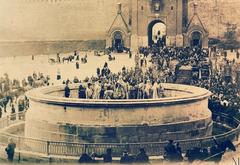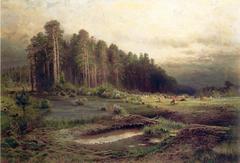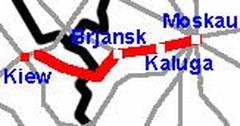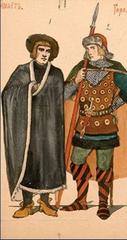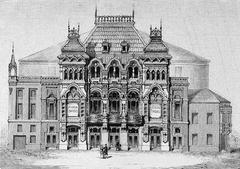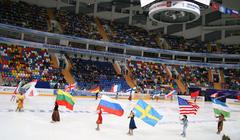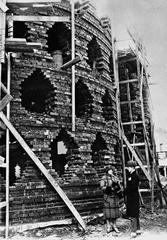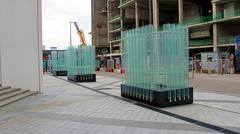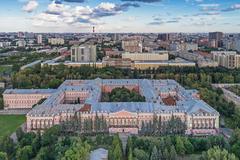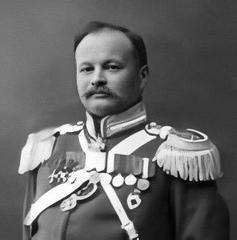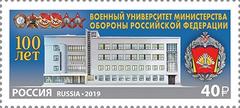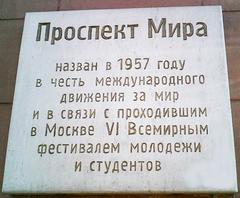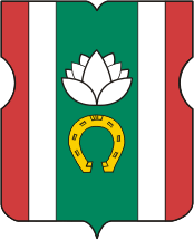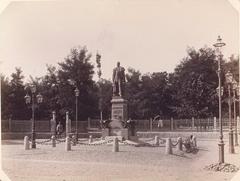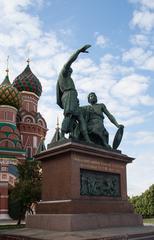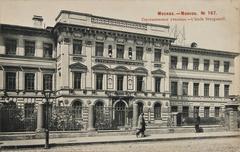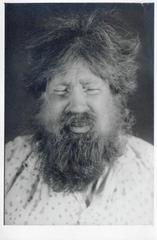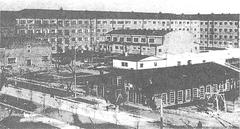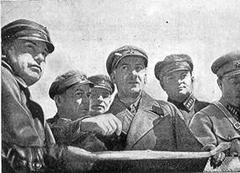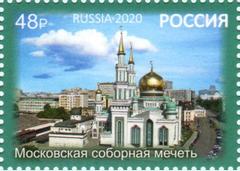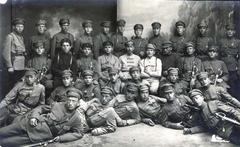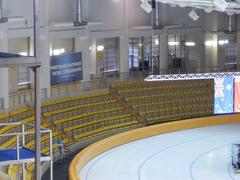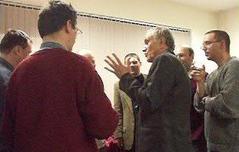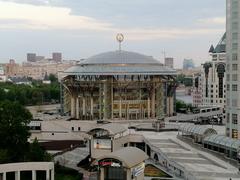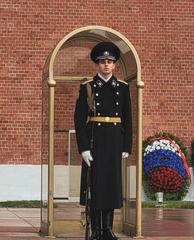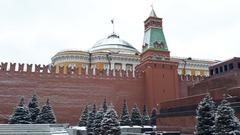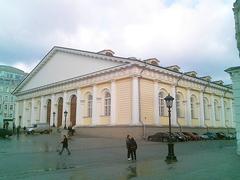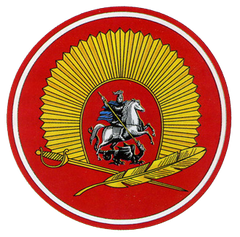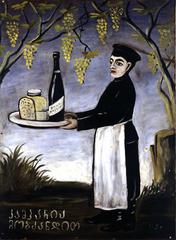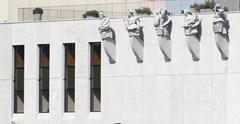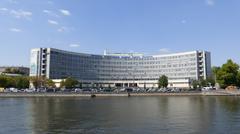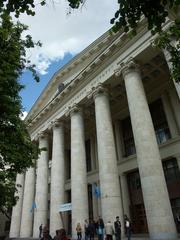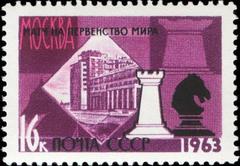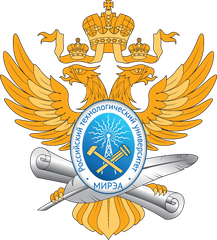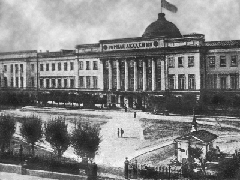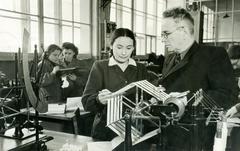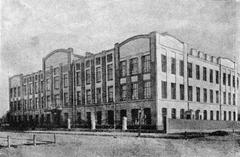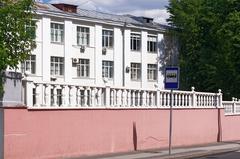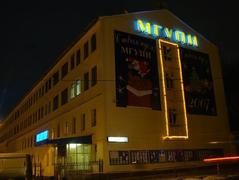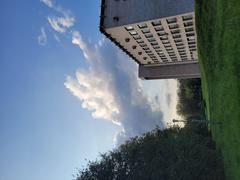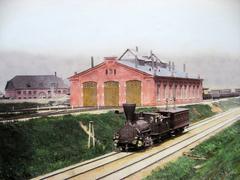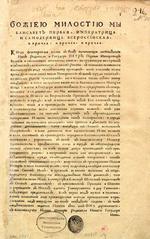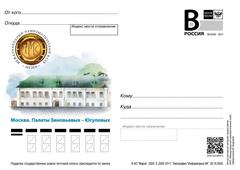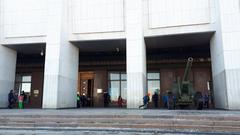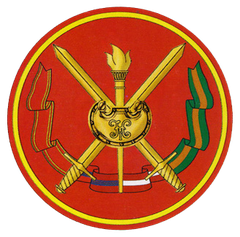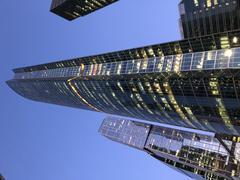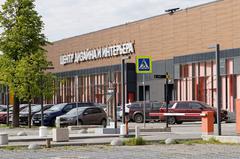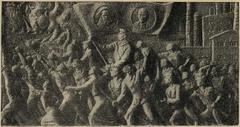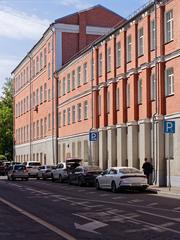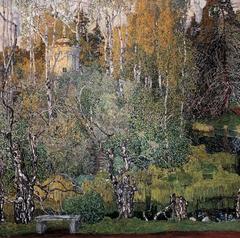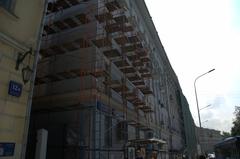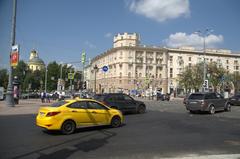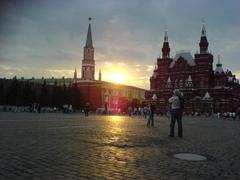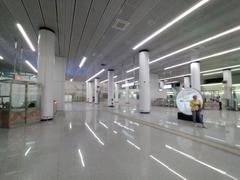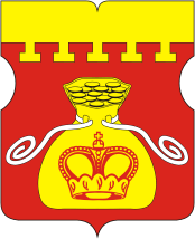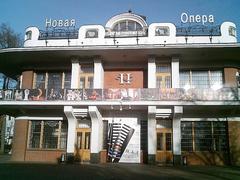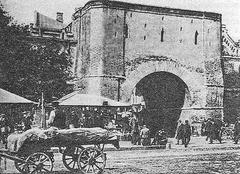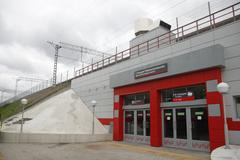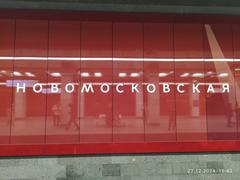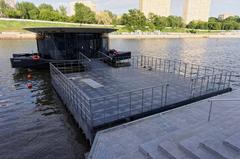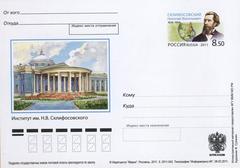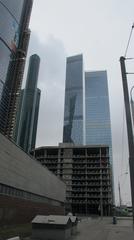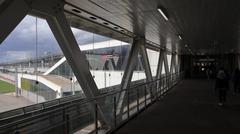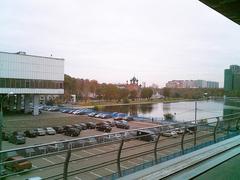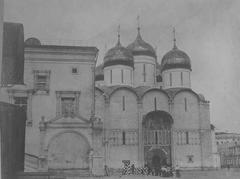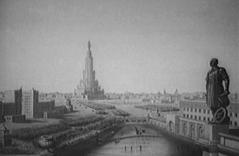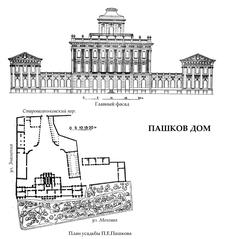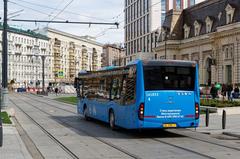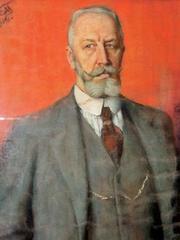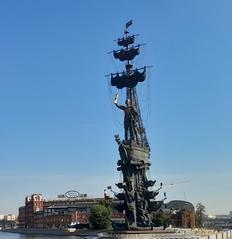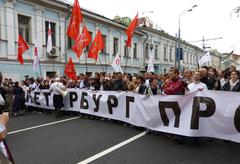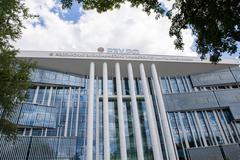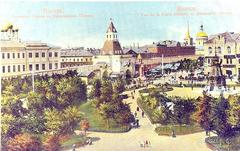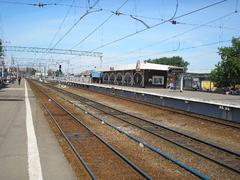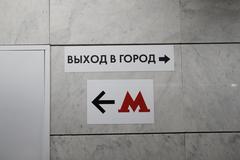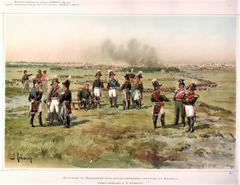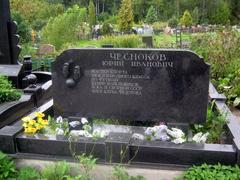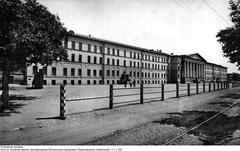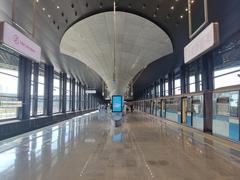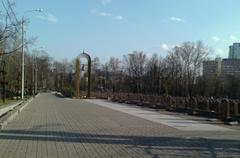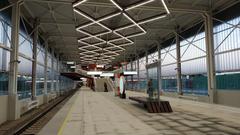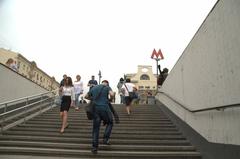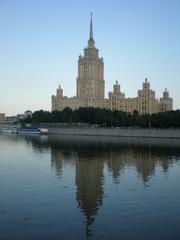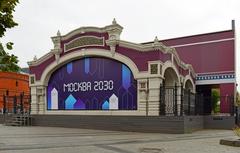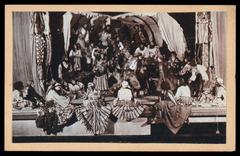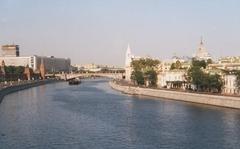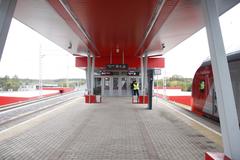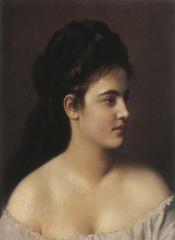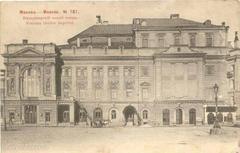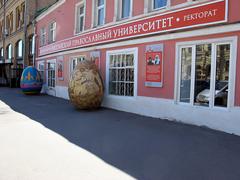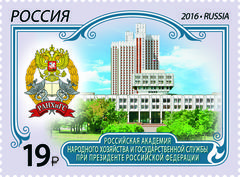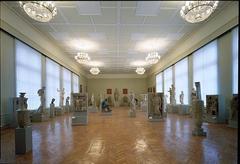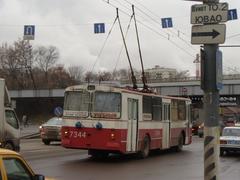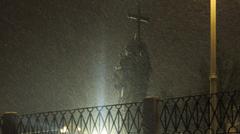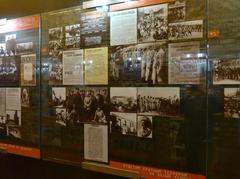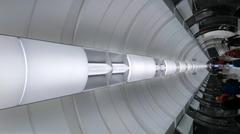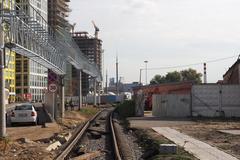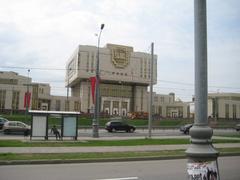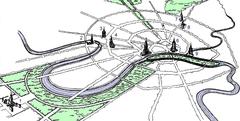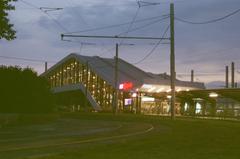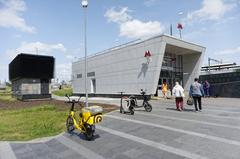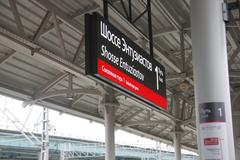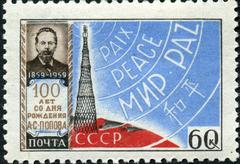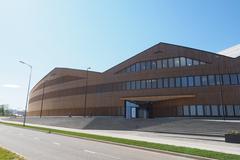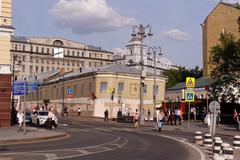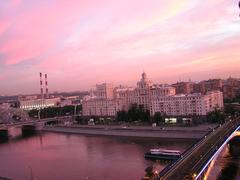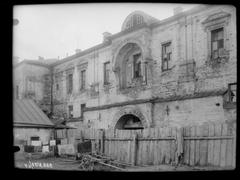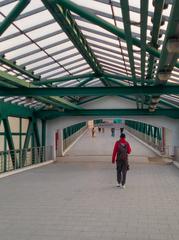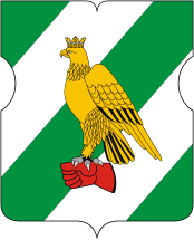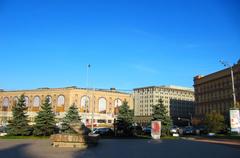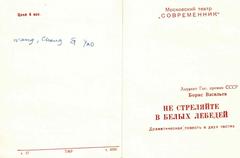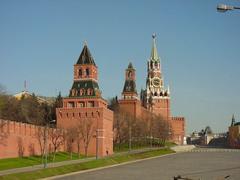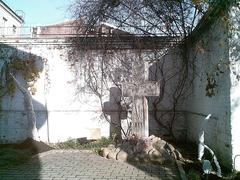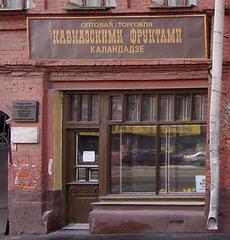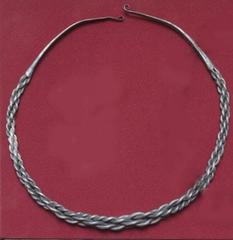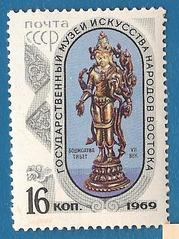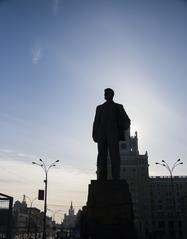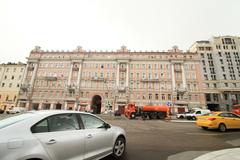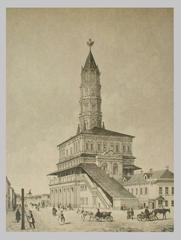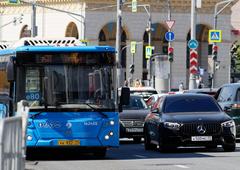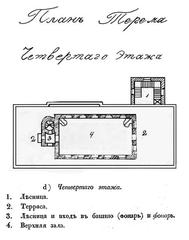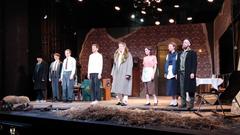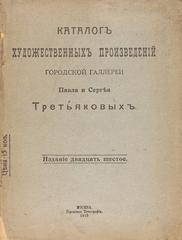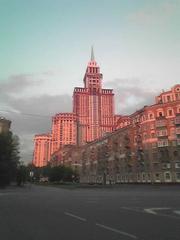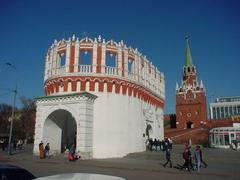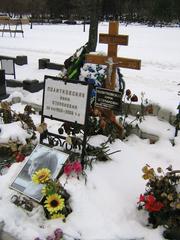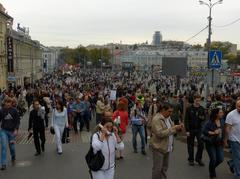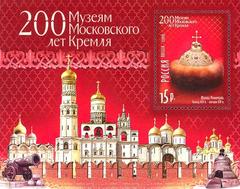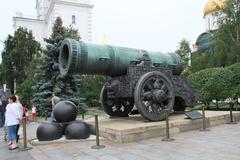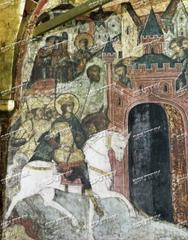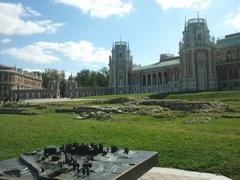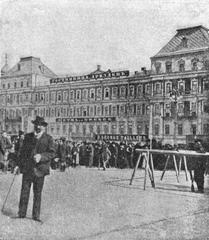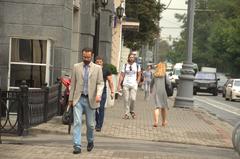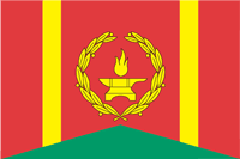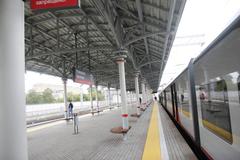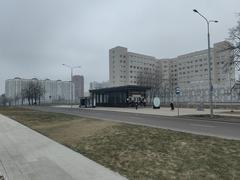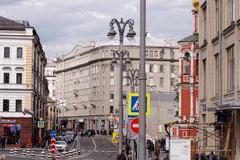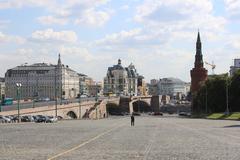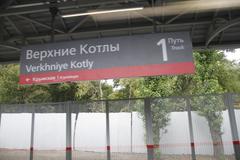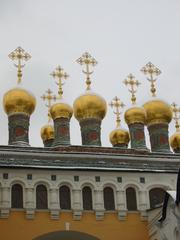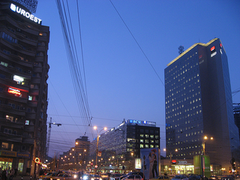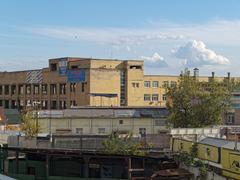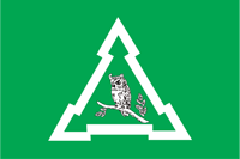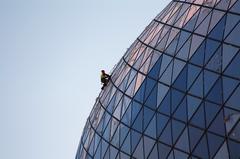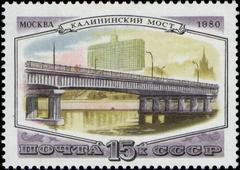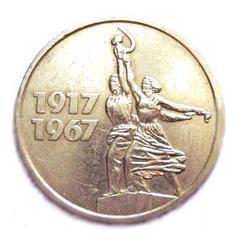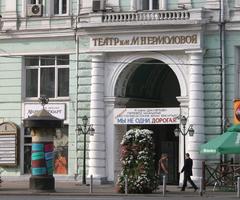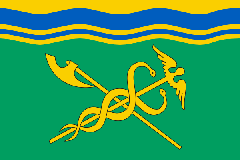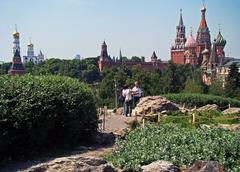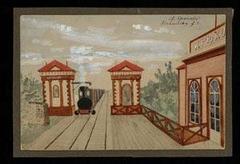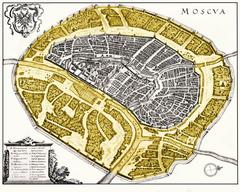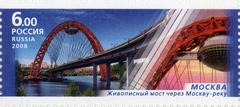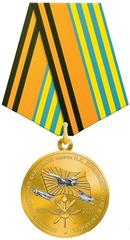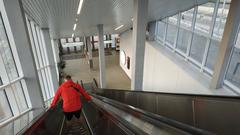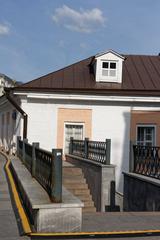Yanka Kupala Monument Moscow: Visiting Hours, Tickets, and Travel Guide
Date: 04/07/2025
Introduction: The Significance of the Yanka Kupala Monument in Moscow
The Yanka Kupala Monument in Moscow stands as a profound symbol of Belarusian literary heritage and the enduring cultural connection between Belarus and Russia. Dedicated to Ivan Daminikavich Lutsevich—known by his pen name Yanka Kupala—this monument honors a foundational figure in modern Belarusian literature whose poetry, plays, and essays helped forge a strong sense of national identity. Kupala’s life and works, shaped by periods of political upheaval and cultural renaissance, continue to inspire generations across Eastern Europe and beyond. His final years, spent in Moscow during World War II, cemented his personal and creative ties to the Russian capital, where he tragically died in 1942 under mysterious circumstances (Wikipedia; Rusmania; Archives of Belarus).
The monument is not only a commemoration of Kupala’s literary achievements but also a focal point for celebrating Belarusian-Russian cultural ties. Its public location near Kutuzovsky Prospekt provides round-the-clock access for all. Whether you are a literature enthusiast, historian, or traveler seeking to explore Moscow’s historical and cultural sites, a visit to the Yanka Kupala Monument offers a unique window into the shared heritage of the Slavic world (Rusmania; tmatic.travel).
Table of Contents
- Historical Background of the Yanka Kupala Monument in Moscow
- Location, Accessibility, and Visiting Hours
- Artistic Features and Design
- Cultural and Historical Significance
- Visitor Experience and Practical Tips
- Role in Belarusian-Russian Relations and Special Events
- International Recognition and Diaspora Connections
- Educational and Inspirational Value
- Commemorative Practices and Community Engagement
- Preservation and Contemporary Relevance
- Comparative Significance Among Monuments
- Frequently Asked Questions (FAQ)
- Visuals and Media Recommendations
- Summary of Key Points
- References and Official Sources
Historical Background of the Yanka Kupala Monument in Moscow
Yanka Kupala (1882–1942) was a towering figure in Belarusian literature, celebrated for his poetry and plays that articulated the hopes and struggles of the Belarusian people (Wikipedia). His unwavering commitment to the Belarusian language and identity made him both a cultural icon and a symbol of resistance during periods of political repression. Following the Nazi occupation of Belarus in World War II, Kupala relocated to Moscow, where he continued his work until his untimely and mysterious death in 1942 (Wikipedia; Archives of Belarus).
The Moscow monument was erected to honor Kupala’s literary legacy and his significance as a bridge between Belarusian and Russian cultures. It is one of several monuments to Kupala worldwide, reflecting his international recognition and the global reach of his works (Archives of Belarus).
Location, Accessibility, and Visiting Hours
The Yanka Kupala Monument is located in a tranquil park near the intersection of Kutuzovsky Prospekt and the Third Ring Road in the Dorogomilovsky district of Moscow (Rusmania). This site is significant due to its proximity to the former Hotel Moskva, the place of Kupala’s death.
- Visiting Hours: The monument is in a public park open 24/7 throughout the year.
- Admission: Free. No tickets or permits are required.
- Getting There: The nearest metro stations are Kievskaya and Kutuzovskaya. The area is well served by buses and taxis.
- Accessibility: The park features paved paths and benches, and is generally accessible to visitors with mobility challenges.
Artistic Features and Design
The monument portrays Kupala in a contemplative and dignified pose, capturing his character as a poet and thinker. Crafted in a realistic style, the statue sits atop a modest pedestal surrounded by greenery, inviting quiet reflection. While details about the sculptor or installation date are not widely publicized, the monument’s thoughtful design and prominent placement reflect its cultural significance (Rusmania).
Symbolic elements, such as references to Belarusian folklore or motifs like the fern flower (associated with the midsummer festival Kupalye), may be included, echoing themes from Kupala’s works (tmatic.travel).
Cultural and Historical Significance
The Yanka Kupala Monument is more than a tribute to an individual; it is a testament to the enduring cultural ties between Belarus and Russia. Kupala’s advocacy for the Belarusian language and his literary achievements have made him a symbol of national pride and resilience (Wikipedia). The monument is a focal point for Belarusian expatriates in Moscow, as well as for lovers of Slavic literature and history.
Internationally, Kupala is celebrated through other monuments in New York, Ashdod (Israel), and Ashgabat (Turkmenistan), highlighting his global cultural resonance (Archives of Belarus).
Visitor Experience and Practical Tips
Best Times to Visit
Spring and summer (May–September) are ideal, offering pleasant weather and vibrant park scenery. Early mornings and late afternoons provide a peaceful atmosphere for reflection, while weekends and Belarusian holidays may attract cultural events.
What to Expect
The monument offers a quiet, contemplative environment rather than a bustling tourist site. Benches and paths make it suitable for leisurely visits.
Guided Tours and Resources
While there are no tours dedicated solely to the monument, it is often included in broader literary and historical tours of Moscow. Visitors can prepare by consulting online resources or using mobile apps for background information (tmatic.travel).
Nearby Attractions
Combine your visit with other sites such as the State Tretyakov Gallery, Victory Park, the Moscow River Embankment, and Stalinist architecture landmarks like Hotel Ukraina (Trip.com).
Accessibility and Amenities
The park is largely wheelchair accessible, though some paths may be uneven. While there are no restrooms or cafés immediately at the monument, the surrounding neighborhood offers various amenities.
Photography and Etiquette
Photography is encouraged. Respectful behavior is expected, particularly during commemorative events—do not climb the statue or leave litter.
Role in Belarusian-Russian Relations and Special Events
The monument is a site of cultural diplomacy, emphasizing the friendship between Belarus and Russia. It hosts gatherings, poetry readings, and official commemorations on Kupala’s birthday (July 7), his death anniversary (June 28), and other significant dates (un.mfa.gov.by). Such events may include performances, speeches by dignitaries, and cultural festivals.
International Recognition and Diaspora Connections
The Moscow monument is part of a global network of sites honoring Yanka Kupala. Similar monuments exist in Belarus, the United States, and Israel, serving as cultural touchstones for the Belarusian diaspora and underlining the universality of Kupala’s themes—freedom, homeland, and resilience (un.mfa.gov.by).
Educational and Inspirational Value
For students, literary enthusiasts, and the general public, the monument is a living classroom. It inspires reflection on the power of literature to shape identity and encourages dialogue about national history and artistic resilience. Public events, readings, and educational tours occasionally utilize the monument as a teaching site.
Commemorative Practices and Community Engagement
Flowers, poetry recitations, and cultural festivals are common at the monument, especially on significant anniversaries. These practices foster community and reinforce cultural identity, often drawing collaboration between Belarusian and Russian cultural organizations (un.mfa.gov.by).
Preservation and Contemporary Relevance
The monument is maintained by both governmental and non-governmental bodies, reflecting the ongoing respect for Kupala’s legacy. Its continued preservation ensures that future generations can engage with Belarusian culture in the heart of Moscow, and Kupala’s themes of justice and identity remain relevant today.
Comparative Significance Among Monuments
While the Moscow monument highlights Kupala’s role as a cultural ambassador, the Minsk monument (in Yanka Kupala Park) is closely associated with Belarusian folklore, featuring a spring and a fern. Each site offers a distinct perspective on Kupala’s legacy, collectively narrating his life’s story (tmatic.travel).
Frequently Asked Questions (FAQ)
Q: What are the visiting hours for the Yanka Kupala Monument in Moscow?
A: The monument is accessible 24 hours a day, year-round.
Q: Is there an admission fee?
A: No, visiting the monument is free.
Q: Is the site accessible for visitors with disabilities?
A: Yes, the park features wheelchair-accessible paths, though some may be uneven.
Q: Are guided tours available?
A: The monument is often included in broader historical or literary tours. Check with local tour providers or the Belarusian embassy for event-specific tours.
Q: What are some nearby attractions?
A: State Tretyakov Gallery, Victory Park, the Moscow River embankment, and Hotel Ukraina.
Q: Is photography allowed?
A: Yes, respectful photography is encouraged.
Visuals and Media Recommendations
- Include high-quality images of the monument and its surroundings for visual context.
- Suggested alt text: “Yanka Kupala Monument in Moscow during daytime,” “Close-up of Yanka Kupala statue with fern flower symbol.”
- For a virtual preview, check official cultural websites or travel portals that offer interactive maps or virtual tours.
Summary of Key Points About Visiting the Yanka Kupala Monument
- The monument honors Belarus’s national poet and underscores the deep cultural ties between Belarus and Russia.
- Located in a central Moscow park, it is freely accessible 24/7 and suitable for visitors of all ages and mobility levels.
- The site is ideal for literature lovers, historians, and those interested in Slavic heritage.
- Visitors can enhance their experience by exploring nearby attractions and participating in commemorative events.
- The monument is part of a global network of Kupala memorials, reflecting his international stature.
- Preparation using official resources, guided tours, or the Audiala app can enrich your visit.
For a comprehensive perspective, consider visiting both the Moscow and Minsk monuments, and consult official cultural resources for up-to-date event information (Archives of Belarus; Rusmania; tmatic.travel; un.mfa.gov.by).
References and Links to Official Yanka Kupala Monument Website and Other Credible Sources
- Yanka Kupala - Wikipedia, 2024
- Archives of Belarus: Yanka Kupala Personality and Work, 2024
- Rusmania: Yanka Kupala Monument in Moscow, 2024
- TMATIC Travel: Monument to Yanka Kupala, 2024
- United Nations Belarus Mission: Cultural events at Yanka Kupala Monument, 2024
- SunSigns.org: Yanka Kupala Biography, 2024
- Moscow.Info: Moscow Travel Guide, 2024
- Official Moscow Tourism Website, 2024
- Belarusian Embassy in Russia, 2024
For further travel tips, cultural updates, and interactive guides, download the Audiala app or follow official tourism and cultural channels. Your visit to the Yanka Kupala Monument in Moscow will not only honor a literary giant but also immerse you in the living traditions of Belarusian and Russian culture.
